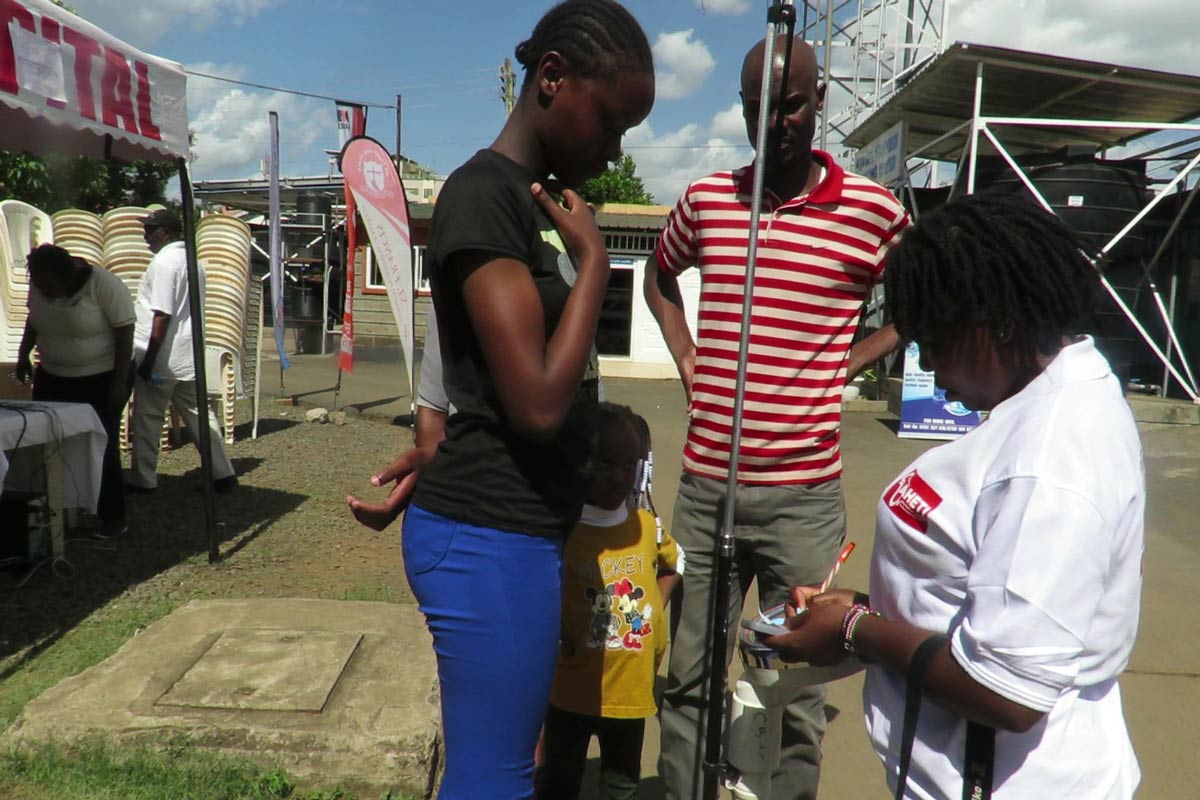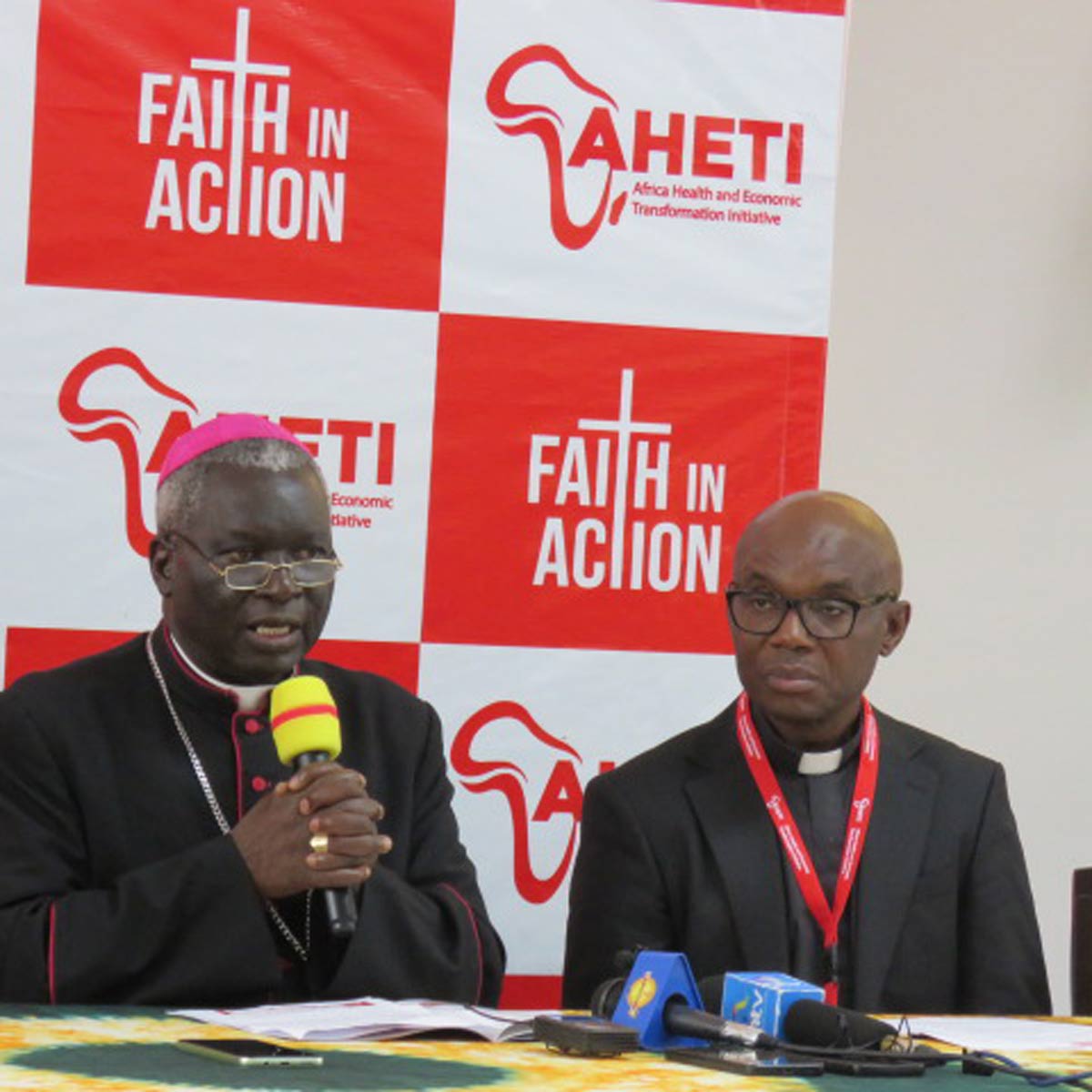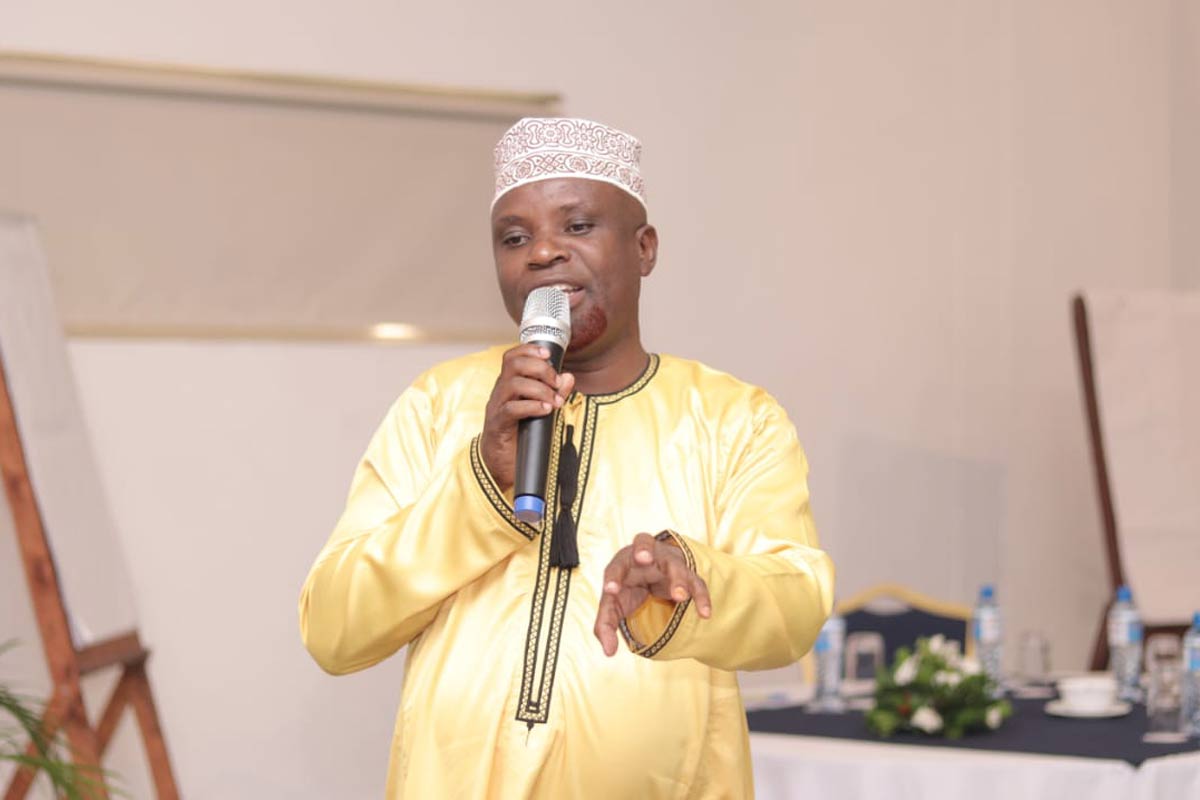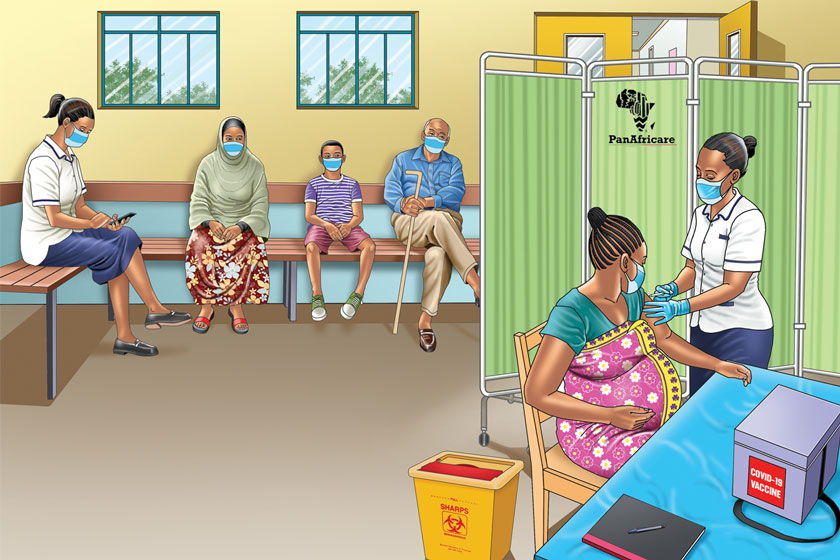In Kenya, religious leaders are helping boost HPV vaccine uptake
Faith can help science bridge the social gap, say priests and imams alike as they advocate for the cancer-blocking jab.
- 18 July 2025
- 6 min read
- by Pauline Achieng Tom

It began as an ordinary day for Father Charles Chilufya, a Jesuit priest and the Director of the Justice and Ecology Office (JEO) at the Jesuit Conference of Africa and Madagascar (JCAM). He was visiting the sick in hospitals, offering prayers and comfort – a regular part of his pastoral work – when, in an oncology ward, something changed.
Chilufya met a woman battling cervical cancer. Her suffering struck him deeply. “She was lonely, in pain and dying, and that really moved me.” He recalls solemnly, “Later on, we lost her, and every time I visited the oncology wing, it was extremely full. I was told that the number of cervical cancer cases had been rising.”
It was during this time that he learnt that the vast majority of cervical cancers are caused by the human papillomavirus (HPV), which is preventable at a rate of up to 99% with vaccination.
“This information crystallised my decision on the path of cervical cancer advocacy,” recalls Chilufya.
The calling
According to a 2025 Pew Research Centre report, 95% of people in sub-Saharan Africa identify with one or another religion. This makes faith leaders a powerful social force, with an outsize capacity to effectively champion healthcare interventions.
Lately, a growing number of religious leaders have been stepping forward to champion the HPV vaccine, bringing the message to families from their pulpits, in mosques and at community gatherings, helping shift aside myths and build trust in vaccines.
For Father Chilufya, news out of 2024’s Cervical Cancer Elimination Forum in Colombia, which laid out the burden of cervical cancer in Africa, pushed him to action.
“It revealed that cervical cancer is being eliminated in various parts of the world, except in Africa. This disease that can be prevented; shouldn’t be taking lives. Yet here we are,” he said.
“The contradiction of having a vaccine, and still seeing women die, moved me to act,” he added.

“Science has found a way, faith can close the gap”
Father Chilufya now works with the Africa Health and Economic Transformation Initiative (AHETI), a coalition of religious leaders and health advocates across Africa who are passionate about ending preventable diseases like cervical cancer.
The organisation was born out of the realisation of the influence religious leaders have on communities.
“Science has found a way to end cervical cancer and needless suffering through the HPV vaccine. Faith leaders like myself have the moral responsibility to help close the gap in awareness of the vaccine,” said Chilufya.
The organisation hopes to get more than 2 million girls vaccinated against HPV, while also actively tackling the stigma and misinformation that surround it, hindering uptake.
“We work across different faiths – Christian, Muslim, Hindu and traditional African religions – in order to build trust. When a priest, pastor, or imam speaks positively about vaccines, it’s not just medicine, but an act of love and a spiritual responsibility.”
“The vaccine is safe, it works”
In Kwale County, Sheikh Amani Khamis, serves as an imam. He is also the head of the Kenya Muslims National Advisory Council (KEMNAC), and the chair of the interfaith council in Kwale.
In this predominantly Muslim community, misconceptions about the HPV vaccine are common, making his voice as a religious leader an important bridge between science and faith.
“There are concerns among parents concerning the safety of the vaccine. This fear is rooted in lack of information on the true benefits of the vaccine.”
Sheikh Khamis relies on the Quran and Hadiths to get his congregation to understand the importance of science in their lives.
The holy book, he explains, contains references to diseases that afflicted even those who came before us. Early Muslim scholars recognised the value of medicine and embraced it as a tool to preserve life.
“As a faith leader, I understand that God brought illnesses into the world, but he also gave us the capacity to treat them,” he explained.
As a spiritual guide he has witnessed the scourge of cancer and especially the financial toll it takes on people. The desire to promote prevention drives his advocacy efforts. He tries to balance offering comfort, empathy and practical advice.
“As a religious leader, I offer comfort and prayer. I have witnessed so many cases of cervical cancer: sometimes we hold fundraisers for [patients] at the mosque.” He added, “One particular woman, I had to give her hope and let her know this is a disease that exists and gave her advice on how she can protect her daughters through vaccinations.”
Beyond speaking during Friday prayers at the mosque, Sheikh Khamis holds different workshops within the county to educate other religious leaders on cervical cancer and HPV vaccine.
“I lead interfaith dialogues with Christians, Hindus, and Kaya elders (traditional spiritual leaders of the Mijikenda people). I also take the message everywhere I go, be it weddings, burials or youth gatherings and the message is always the same: the HPV vaccine is safe, it works.”

A champion’s story
For Emily Wekesa, cervical cancer is not a folktale but her lived experience. This year marks her fifth in remission. As a mother, she now prides herself on her advocacy for the HPV vaccine.
Her advocacy efforts are rooted in the fact that there is limited awareness on its existence.
“I first heard about the HPV vaccine after I had already gone through my treatment. That is when I realised there was a real need for people to understand the importance of the HPV vaccine, because I shouldn’t have gone through what I went through.”
Wekesa started her advocacy journey at home, bringing her two nieces to the clinic for their HPV jabs. They were among the first cohort in Kenya to receive the vaccine.
“After meeting the religious leaders through AHETI, I knew I wanted to vaccinate my nieces who were then 10 and 12 years old. I wanted to protect them from what I went through, [so] I set out to educate their parents.”
“Vaccinating them gave me the peace of mind, knowing I was giving them the strongest layer of protection for their future,” she added.
Though Wekesa’s own experience of cancer made her determined to protect her nieces, she says hearing faith leaders advocate for the vaccine helped calm any niggling doubts. “Personally, I am a Catholic, and it was easier for me when I heard my own bishop talking and encouraging us and others to take the vaccine. That gave me confidence, and I came to understand that it is very safe.”
Have you read?
The cervical cancer burden
In Kenya, cervical cancer remains the second most common cancer among women. This is despite it being the most preventable form of cancer.
The Global Cancer Observatory (GLOBOCAN) 2022, estimates that about ten women in Kenya lose their lives to cervical cancer every day. Kenya reports 53 cases per 100,000 women, well above the World Health Organization’s (WHO’s) target of 4 cases per 100,000.
Kenya’s Ministry of Health introduced the HPV vaccine in 2019. Since then about 3.3 million girls have received the vaccine: progress, but below target. Vaccination efforts have been marred by limited awareness and misconceptions causing hesitancy among parents.
“This is where faith leaders come in,” said Father Chilufya. “We are committed to help the government achieve the WHO 90-70-90 targets.”
In its elimination strategy, WHO calls for 90% of girls to be vaccinated, 70% of women screened, and 90% of those in need to be treated.
As this unique interfaith initiative takes over the nation, it represents a quiet revolution where faith unites with science for the good of the community.






